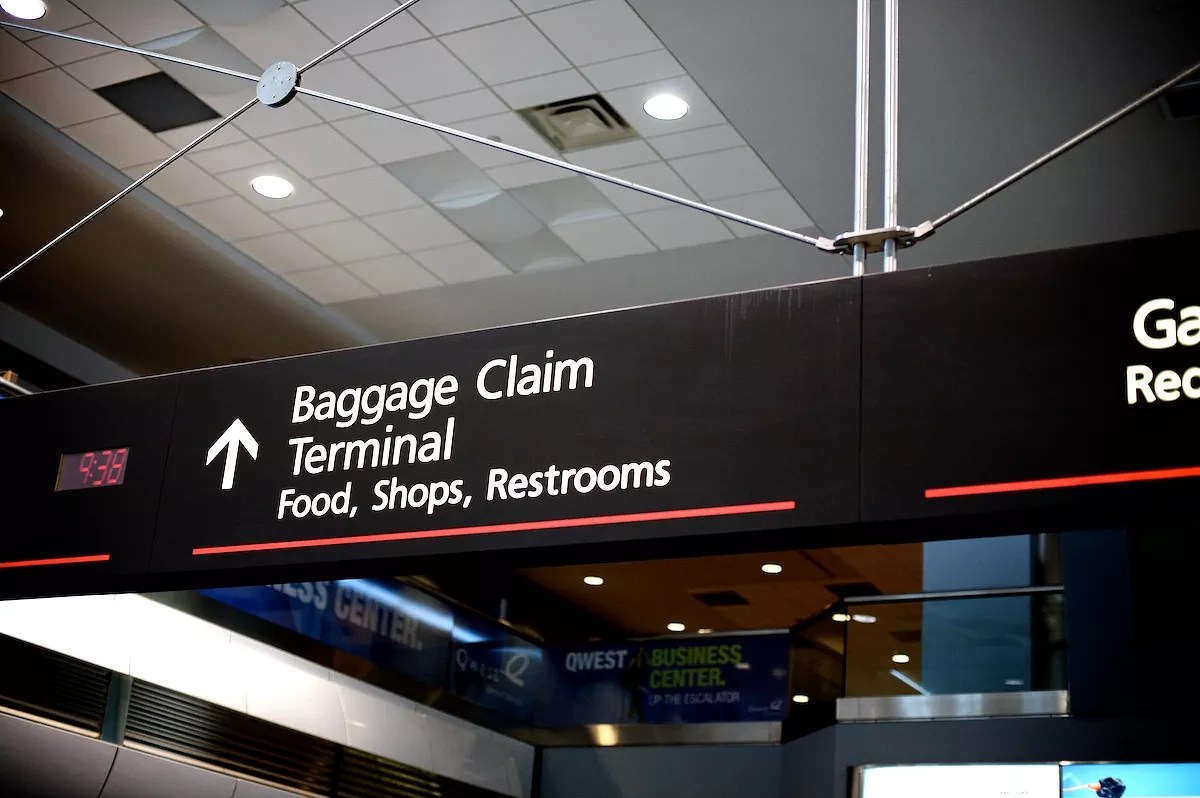
Flickr/Gary Kavanaugh

Audio By Carbonatix
Denver International Airport eliminated valet parking last year in favor of an automated parking system, but DIA still technically has a valet…for trash.
According to airport officials, a trash collection service installed in 2024 has drastically improved DIA’s waste diversion rate, or the amount of waste that goes into compost or recycling bins instead of landfills, and there are plans to expand it this year.
The airport’s Zero Waste Valet pilot program, launched in June, has recorded 69.2 tons of material diverted during its first six months of operation, with a waste diversion rate of 71 percent for businesses in the program. In 2023, DIA’s overall diversion rate was 21 percent.
Scraps, a Front Range compost company, was contracted by DIA to run the valet program by helping concessions in Concourse B understand what types of waste should be recycled, composted or trashed. The collectors then physically move waste to the right places for each company and take it to the airport’s waste areas.
“The airport is a really secure place, and so sometimes those security barriers just make it a little bit more difficult to dispose of waste properly,” says Alexa Rosenstein, the airport’s waste diversion specialist. “The Zero Waste Valet program is designed to overcome some of those hurdles.”
Scraps’ four current employees have different security access than most concessions employees, allowing them to move waste across the airport in a faster manner. The service eliminates the waste-removal burden from concession workers while keeping disposal consistent despite turnover or buy-in among concession employees.
“They’re also making sure that none of those waste streams, compost and recycling, have contamination, meaning items that shouldn’t be in there,” Rosenstein says.
Part of that work includes educational signage and equipment to better explain recycling and composting. There are currently nineteen concessions participating in the valet program, all in the B concourse, from Voodoo Doughnut to Snooze to Elway’s and the United Airlines Club.
According to Randi Zimmerman, Scraps’ director for the Zero Waste Valet program, the program has grown since launching six months ago. In the beginning, it was just her and one other person doing one pickup per day in the afternoon. Now, Zimmerman and her team of three conduct three pickups between 7 a.m. and 4 p.m.
“As we enter 2025, we’re expecting to expand the number of concessions that we’re servicing, but also expand our hours into evenings so that we can capture that last rush at the end of the night when a restaurant is closing,” Zimmerman says. “That is the only piece that’s missing from our equation at the moment.”
Rosenstein says the airport has wanted to implement a program like the Zero Waste Valet for a long time, because concessions are a large contributor to the airport’s overall waste stream. Working with back-of-house systems is much easier than making sure all of DIA’s millions of passengers treat waste properly, Rosenstein adds. (Food scraps from people who purchase and don’t finish meals are still deposited into the airport’s regular bins for recycling and trash, which Scraps doesn’t handle.)
The waste valet program was tested in 2024 after DIA won a $495,000 Front Range Waste Diversion Grant from the Colorado Department of Public Health and Environment. That grant afforded enough for one concourse in the pilot program; Concourse B was selected because it is the busiest of the three concourses at DIA.
According to DIA officials, most concessions had cardboard recycling down, but mixed recycling and compost presented challenges. Compost is already the highest waste stream by weight in the Zero Waste Valet program, and trash is the lowest.
Rosenstein says the program is reaching a point where Zero Waste Valet efforts impact the airport’s overall diversion numbers, but they don’t have firm data to share yet.
“It’s just in these past two months where we’ve seen this amount of compost that we know the Zero Waste Valet team has handled is visible now in these higher-level numbers,” Rosenstein says. “What we’re anticipating is that, as the program continues to grow and expand to more restaurants on the B Concourse, that impact to our higher-level diversion numbers will continue to increase.”
By the end of 2025, all concessions on Concourse B will be part of the program, according to DIA, with a long-term goal of expanding to the airport’s other two concourses.